AUGUST 01, 1834
Abolition of Slavery Act
Black people are now considered British subjects, paving the way for property-owning Black men to vote. But racism and discrimination at polling stations mean many do not cast their ballots. See the Slavery Abolition Act, 1833.
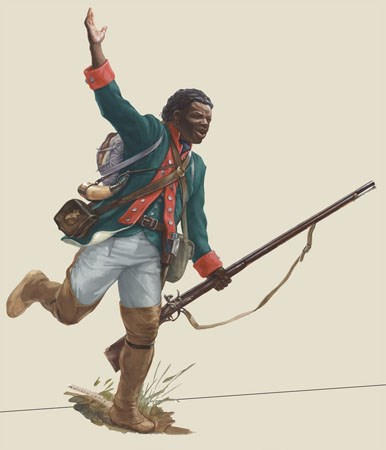
MARCH 03, 1835
Joseph Howe was acquitted of libel for publishing an article in his newspaper, The Novascotian, critical of Halifax's magistrates. The trial marked a turning point in the history of reform politics in Nova Scotia.
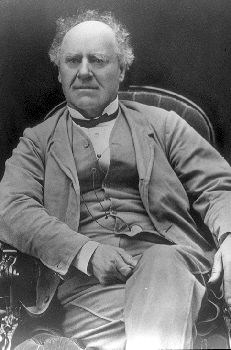
JULY 21, 1836
Canada's first railway, the Champlain and St Lawrence Railroad, officially opened; it began operations on July 25. The railway heralded the most important change in transportation in Canadian history.
JUNE 15, 1846
The Oregon Boundary Treaty was signed, establishing the boundary between British North America and the US at 49° north latitude, leaving Vancouver Island in British hands, and creating a settlement with which Canada and the US could live in harmony.
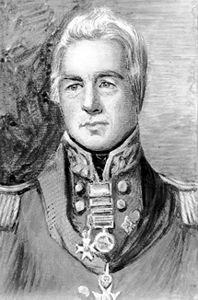
OCTOBER 22, 1846
The Toronto, Hamilton, Niagara and St Catharines Telegraph Company was established, the first telegraph company in Canada. The first section was opened for use 19 Dec 1846 from Toronto to Hamilton. The telegraph profoundly altered 19th century life.
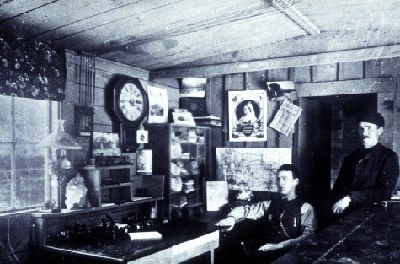
MAY 01, 1849
Legislation barring women from voting is passed by the Province of Canada and becomes law.
JANUARY 10, 1850
Robert McClure and Richard Collinson began the extensive search for Franklin, likely the greatest search mission in the history of exploration. In the process, more was revealed of the geography of the North than at any other time.
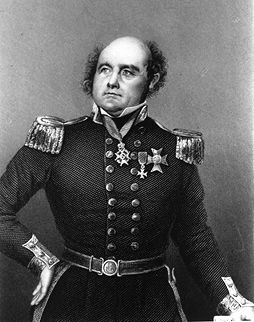
NOVEMBER 17, 1856
The Grand Trunk Railway was completed from Guelph to Stratford, Ont; the last stretch from St Marys to Sarnia was finished on November 21. The GTR was a significant factor in the economic development of Canada.
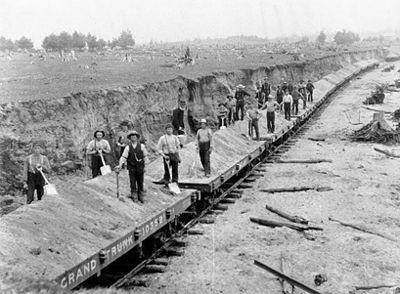
APRIL 25, 1858
The first wave of miners from California arrived at Victoria, en route to the Fraser River Gold Rush. The Gold Rush caused a precipitous decline in the Indigenous population and politically unified British Columbia.
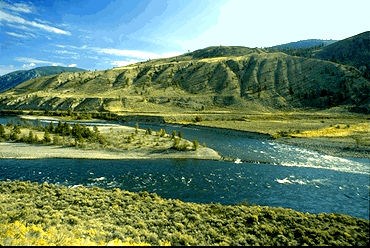
JUNE 27, 1860
Queen's Plate First Held North America's oldest continuously run horse race, the Queen's Plate, was first held at Toronto's Carleton Track. It was open to all horses bred in Upper Canada that had not yet won money and the prize was 50 Guineas.
MARCH 08, 1867
The British North American Act was passed by the British Parliament and given royal assent by Queen Victoria on 29 March. It came into effect on 1 July. The Act joined the colonies of Canada, Nova Scotia and New Brunswick in one federal union. In 1949, Newfoundland becomes Canada’s newest province. In 1999, Nunavet becomes Canada’s newest territory. Its creation establishes self-governance for the region’s Inuit population.
SEPTEMBER 20, 1867
First Election Post-Confederation: Sir John A. Macdonald leads the Conservative Party to victory. Men over the age of 21 who meet property qualifications can vote.
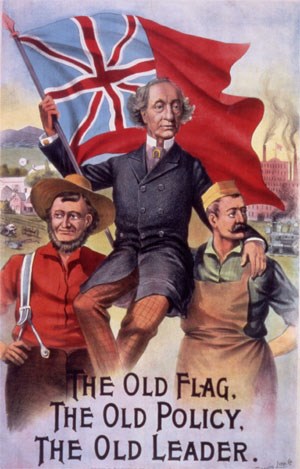
NOVEMBER 02, 1869
With 120 men, Louis Riel occupied Upper Fort Garry in the Red River Colony to block the transfer of Rupert’s Land from the Hudson Bay Company (HBC) to Canada. Known as the Red River Resistence, the Metis — led by Riel — and First Nations allies defended the Red River Colony from White settlers and government encroachment on their lands. Louis Riel was hanged for treason, and Cree chiefs Mistahimaskwa (Poundmaker) were imprisoned. Promises to protect the Métis were still unfulfilled more than a decade later, sparking the Northwest Resistence in 1885. In 2019, Poundmaker was exonerated by the federal government.
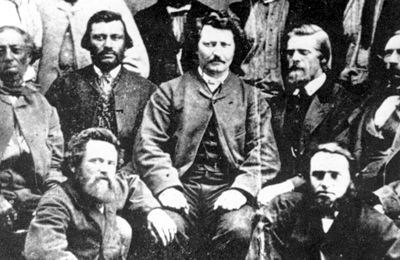
NOVEMBER 07, 1885
The “last spike” of the Canadian Pacific Railway was hammered by Lord Strathcona at Craigellachie, B.C. This fulfilled a government promise to connect BC to Eastern Canada via a transcontinental railway. Among the workers who built the railway were 15,000 labourers from China, many of whom died during the railway’s construction.
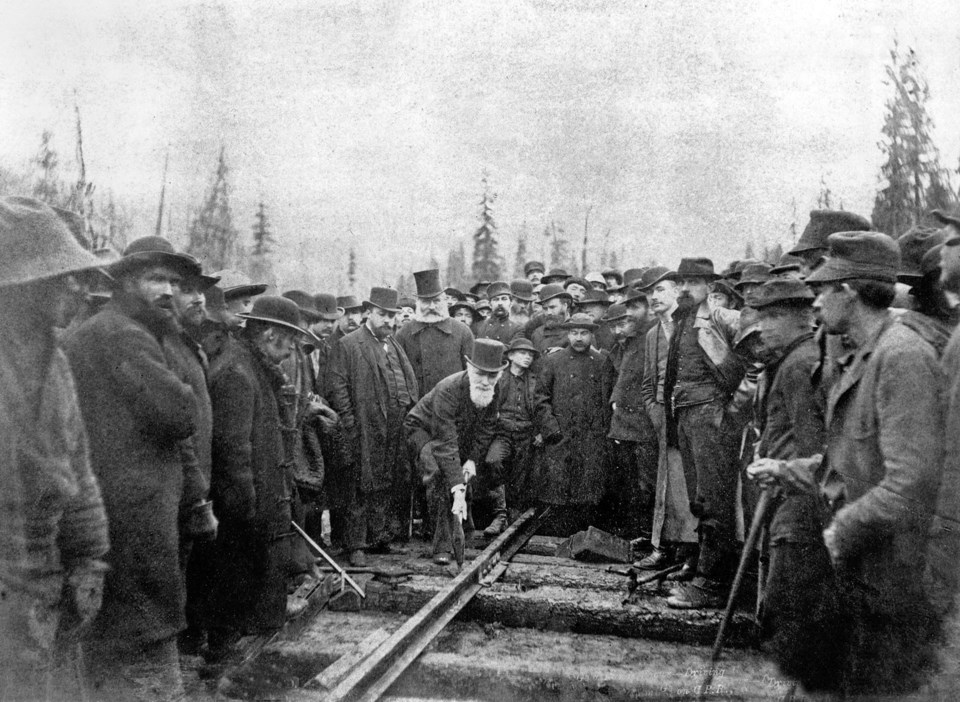
NOVEMBER 16, 1885
Louis Riel was hanged for treason at the Regina jail. He had been convicted after a trial held in Regina from 28 July to 1 August. Macdonald's refusal to grant leniency made Riel a symbol of English-Canadian oppression.
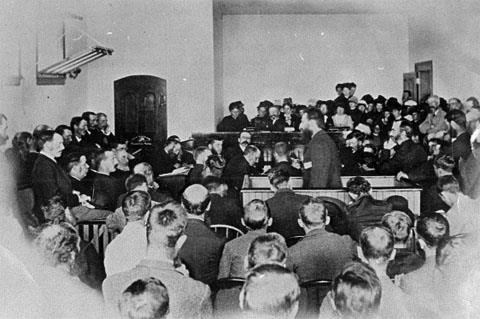
MARCH 22, 1894
The Stanley Cup, donated by Governor General Lord Stanley, was first awarded to the Montreal AAA hockey team. Montreal defeated the Ottawa Generals 3-1.
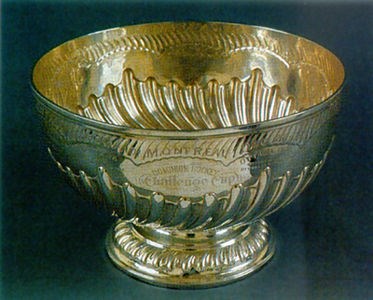
www.thecanadianencyclopedia.ca/en/timeline/100-great-events-in-canadian-history




